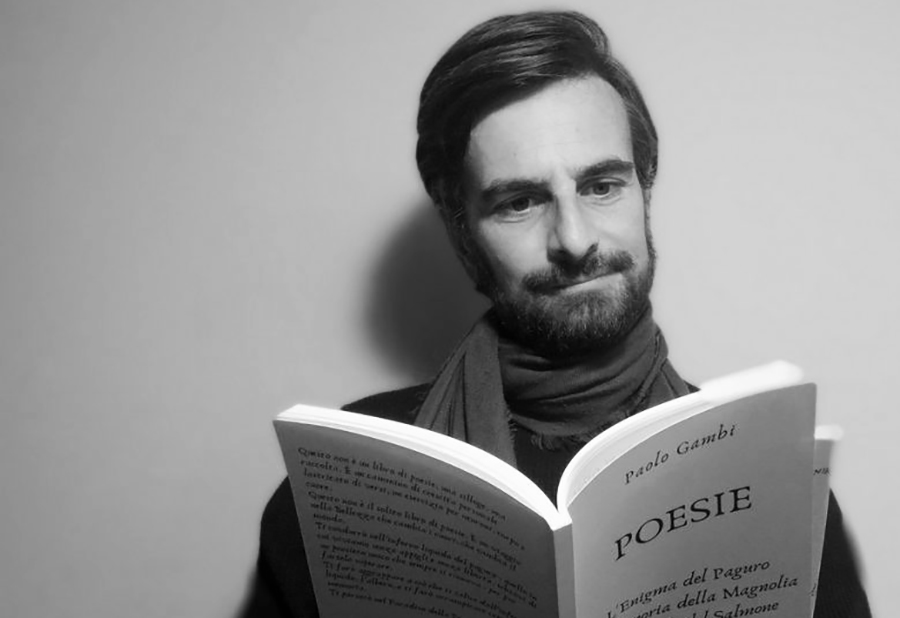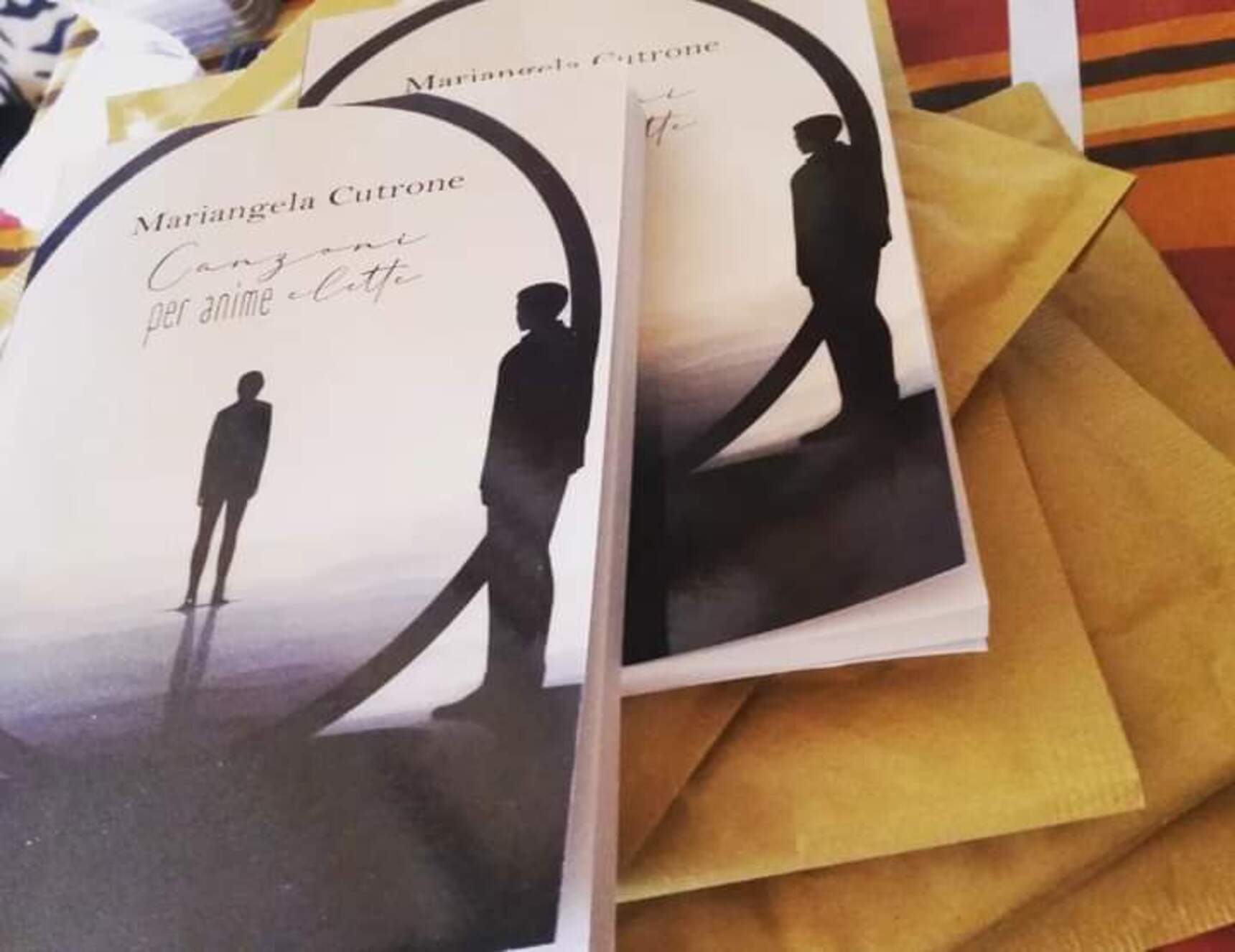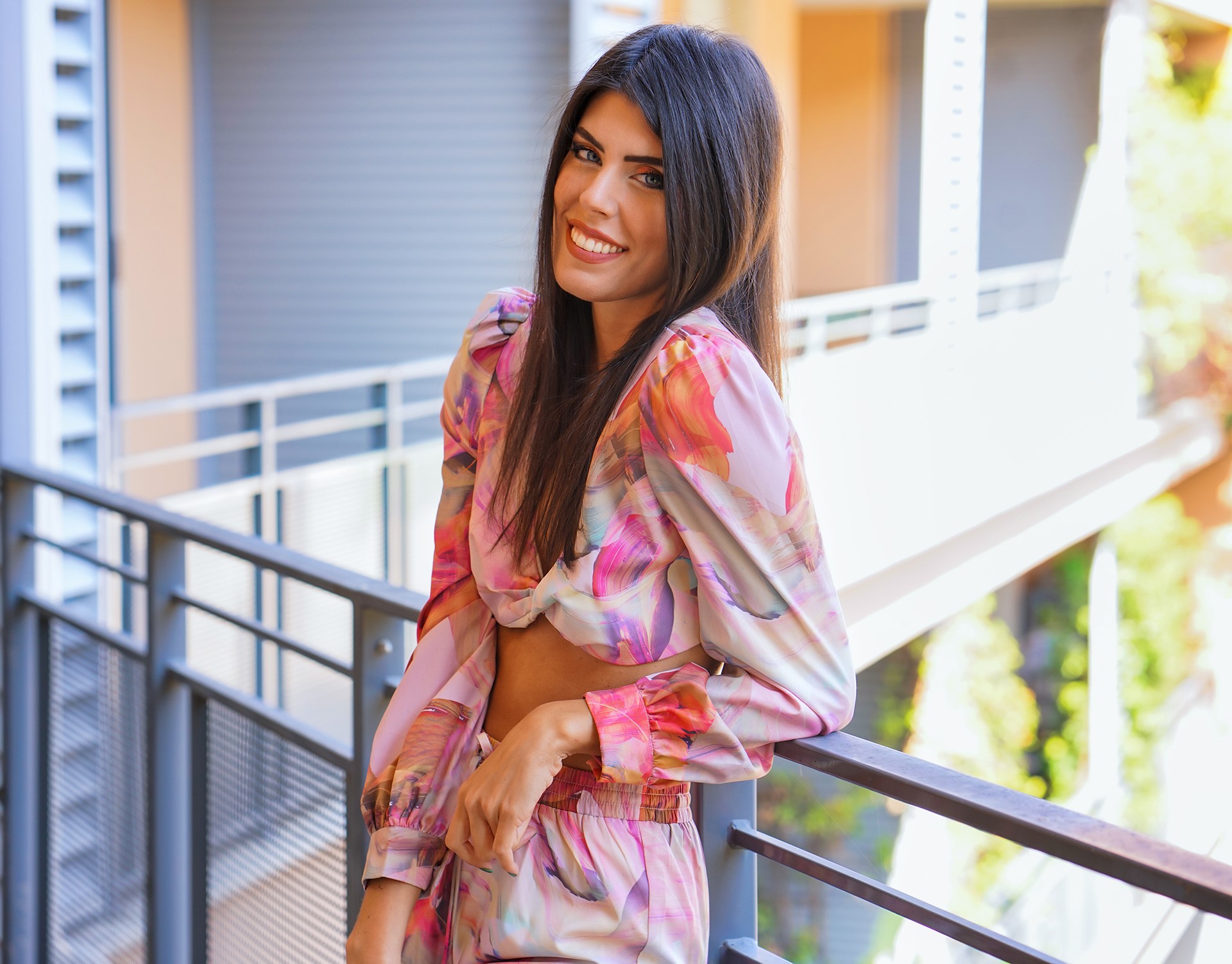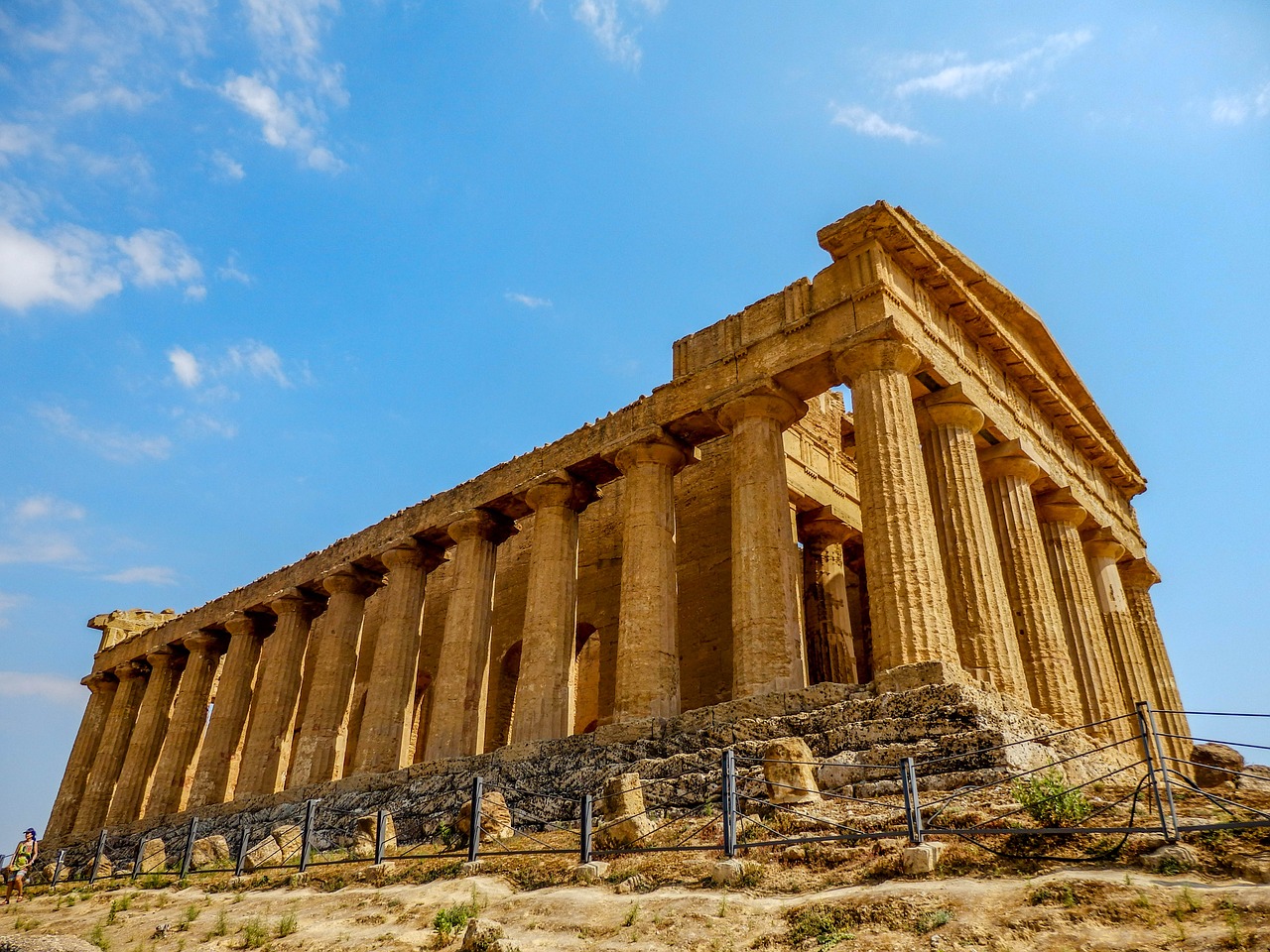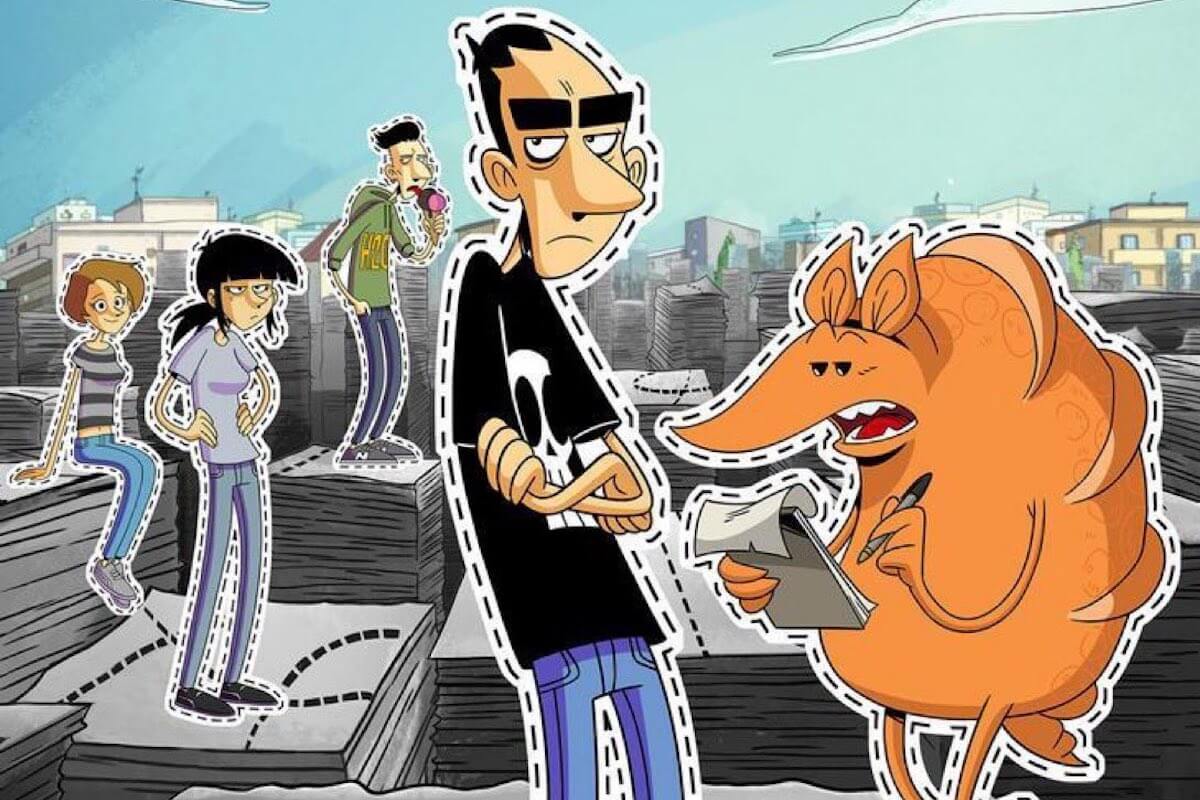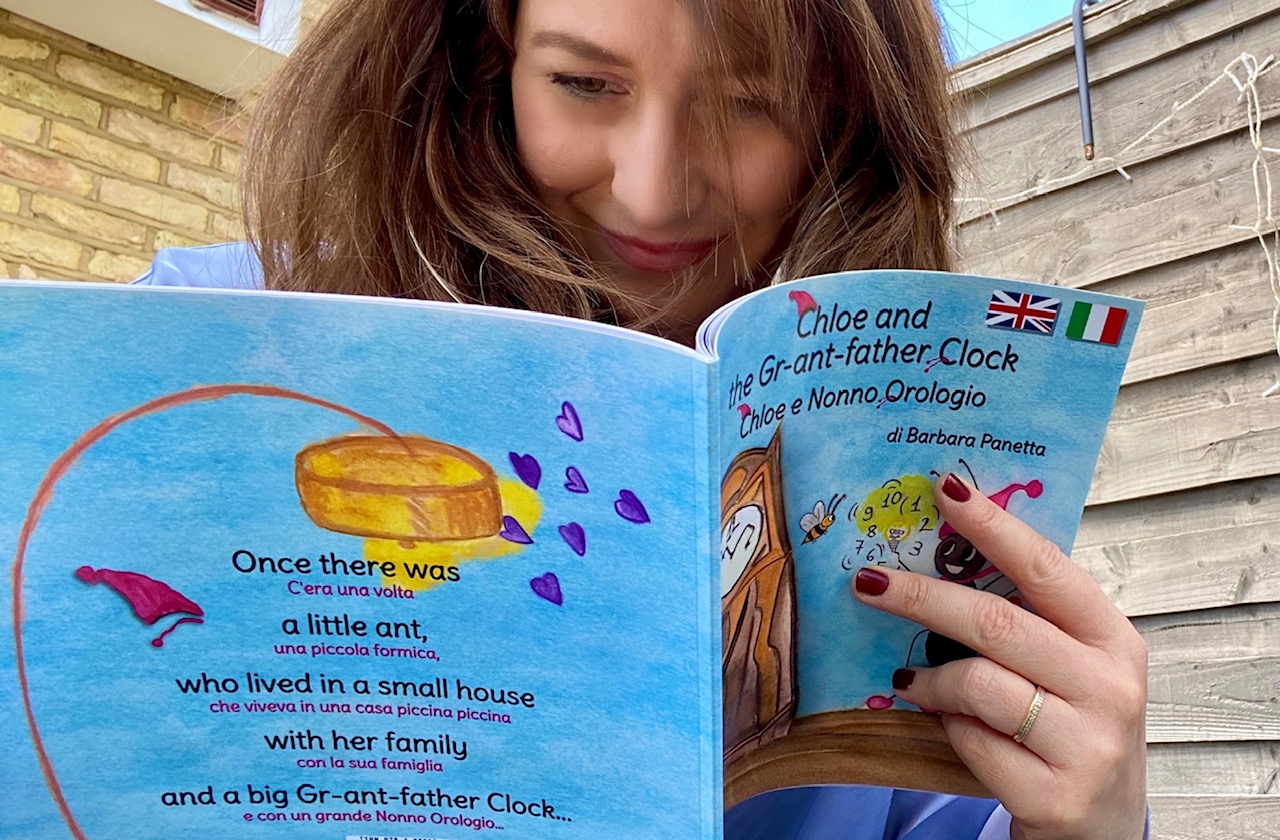Poetry is a sublime form of art. It knows how to put us in contact with the not always visible universe that we have inside. Thanks to it we learn to observe the world through the prism of beauty, making peace with what we struggle to accept.
The poetry of Paolo Gambi, poet, writer and blogger, is called poetry to heal. Collaborator of Italiani.it since February 2019 he won the Guidarello Award for Author Journalism (2012), the Rimini Europe Award (2016) and the Loris Award Malaguzzi for poetry (2019). He has written 28 books and collaborated with Cardinal Tonini, Gustavo Raffi, Alessandro Cecchi Paone, Alessandro Meluzzi, Ettore Gotti Tedeschi and even Raoul Casadei. Recently he has published the anthology of poems L’enigma del paguro, La memoria della magnolia, L’approdo del salmone.
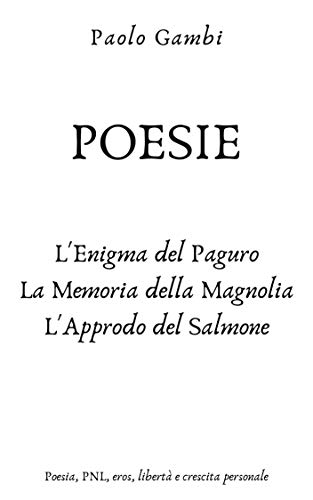
It is not just a collection but a journey of exploration, towards the most hidden landings of the soul. Reading Gambi’s poems is a journey. But also an opportunity to see that pure idea of Beauty that is capable of moving the world.
Many are the topics caressed by Gambi’s pen. It will be easy and beautiful to move between enigmas and moods. An invitation to live according to a personal ideal, without fear of swimming against the tide. Without ever interrupting our personal search for beauty. The life-giving antidote to liquid hell that hides the essence of things and life from us. Paolo Gambi talks about the role of the poet and the key concept of Beauty in this exclusive interview.
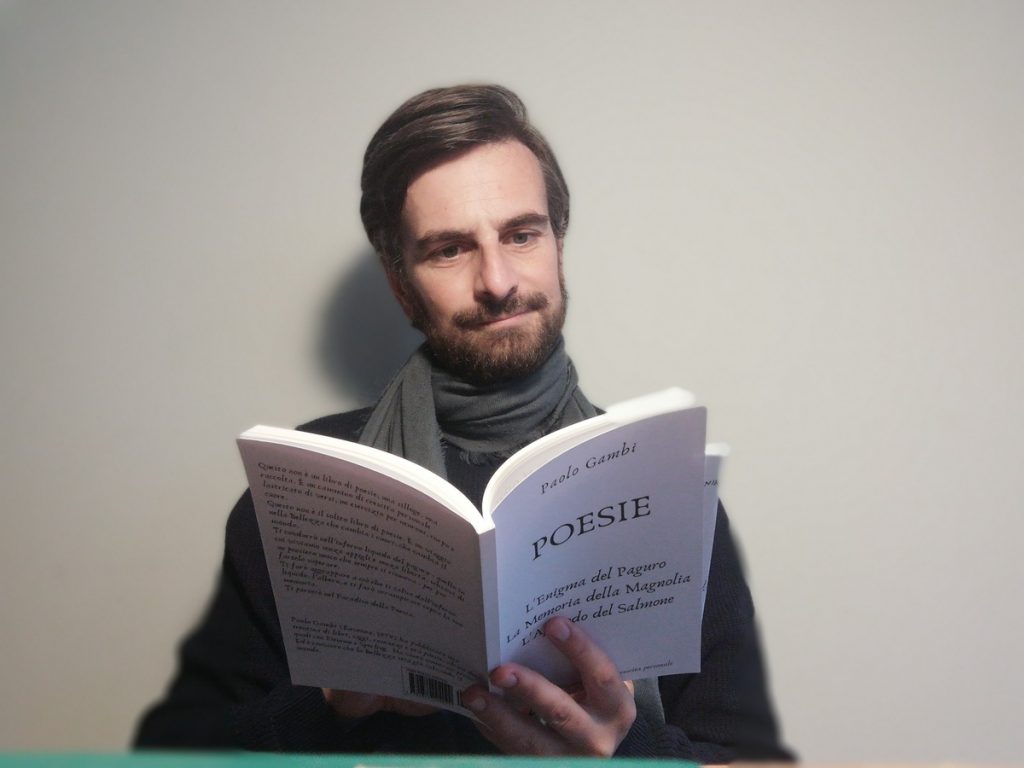
What does inspire your lines?
They are looking for me, not vice versa. Those who have known Art know that it works like this: it decides everything. When you show up then you can only surrender to it or spend the rest of your life regretting not having done it. This is why I gave up everything: journalism, work, the thought of a normal life. To let myself be chased by Art. And the lines flow by themselves.
What value does poetry have for you?
Poetry is the way I have to translate the mystery of Beauty into human language. It is a bridge, like any form of art, that connects distant worlds, what is here with what lies beyond, elsewhere. I would say that poetry is everything for me today. And I truly believe it can save the world. Indeed, I think it’s already doing it.
What is the role of the poet today?
There are poets, convinced of being masters and custodians of poetry, who are perched in “esoteric” knowledge, in closed and very small circles, certain that only they can handle poetry. I am the opposite, I am convinced that no one can be called “master” of Art but at most his servant. And as servants of the art, poets must bring poetry everywhere. Poets today, in a historical moment in which the word – spoken or written – has returned to play a central role thanks also to technology, have an immense responsibility: to bring poetry, and therefore salvation, to the new collective unconscious, in the mind on which it mirrors the whole global village. It is not a small matter and can only be done by getting your feet, and your fingers, dirty.
We notice a careful knowledge of the human soul from your collection. How did your interest begin?
It begun when I realized I belonged to the “human being” category. I have been pursuing human interest for years by being a journalist, telling people’s stories. Then I started to invent stories in my novels. Then I did it as a “mental coach” entering the maze of the human mind. But in its fullness the answer comes only with the languages of Art, which make clear to men the mystery of the human better than anything else.
Your collection is a journey into Beauty that will save the world. What is your idea of beauty?
For me, beauty is one of the absolutes, it is a mystical concept. Yes, of course, Beauty emerges in small things, it is reflected, even if only for a moment, in a face, in a body, in a landscape. But it is much more. Beauty, Good, God, in a sense they are synonyms, they are words that human beings use to tell something that their mind alone cannot embrace. Beauty is what lies in that mysterious dimension in which the laws of the heart are in force. But it will not save the world in the future. It’s already saving it here and now.
The hermit crab seeks to save itself from existential hell. What holds will bring us to safety?
I do not feel like a bearer of many answers, give voice to my questions is what I do best. I know that we live in a “liquid hell” that I tell in the first part of the book, that of Zygmunt Bauman in which everything – identity, institutions, ideologies – is liquefied. To be able to save ourselves we need wood, wrecks to hold on to. And if this wood finds the earth it comes to life and becomes a tree. And the tree keeps the memory of the universe. It is the second part of the book, the “arboreal purgatory”. So maybe the first word to tear us away from the liquid logic of hell is “memory”
One of your poem is dedicated to the art of forgiveness. Without forgiveness there is only hell. How can we learn to forgive, and how much can it change us?
Those who don’t know how to forgive always ends up having a very illustrious condemned victim of his own sentences: himself. In order to forgive others we must first learn to forgive ourselves. With an embrace that humbly accepts all that we do not like about us, all that is not as our mind would like. To renounce what would logically be right – that is, the conviction of the guilty – whoever wants to forgive must therefore find two small seeds: humility and embrace.
Is there a poem inside your collection that you are most fond of?
There are some lines that still make me move today, literally, when I read them. Like these:
e resterà solo ciò che conta: – Only what matters will remain:
ciò che è piccolo – what is small
e che va piano. – and goes slowly.
But I really don’t know why. Maybe the others won’t say anything. Poetry is like this: it speaks intimately to people, and each is a world in itself.
Salmon manages to save itself from hell because, as opposed to the others, it goes beyond what the mass does. What does swim against the tide mean to you?
Do not uncritically accept what is imposed as “normal”. Today the politically correct has rewritten new dogmas to guide the new ideology that aspires to become unique. Here, swimming against the tide today means for example fighting for freedom, against the tyranny of the politically correct. But it also means going against yourself. To be truly ourselves, we must be able to abandon many things that we believe are part of us. Like a nut: to reach the heart you have to smash the shell.
Pandemic has favored introspection. As well as your lines that lead the reader to sink into himself. How important is inner dialogue for creative purposes?
I have lost the contours of the interior and exterior. The dialogue is between inside and outside, me and the others, me and myself, in an almost indistinct way. “Dialogue” is an extraordinary term: from the Greek dia-logos, a word that crosses. Here I believe that our challenge, the challenge of each one, is precisely that of being able to open ourselves to the word, to this “dialogue” that embraces the entire universe, from the most distant star to the garden of our neighbor. And it is from the encounter of different things that something new is born. The creative process is all there
Poetry is an art form that struggles to assert itself, what do you think?
I think this is not entirely true. I see, with pleasure, that social networks have awakened a whole new generation attracted to poetry. There are millions and millions of young and very young people – a few hundred thousand only in Italy – who use instagram as the horizon of a simple poetic research. In my small way, during the quarantine, I did direct daily poetics. At 9pm every day we read poets, great and small. At the beginning we were twenty, then fifty, then a few hundred. We have reached 2400. I believe it is true that in recent generations those poets who wanted to make poetry a matter for literary critics and esoteric circles have turned people away from this art. But that period is over. The doors have reopened and the air has returned to circulate.
We unconsciously carry ourselves within our inspiring teachers. What are yours?
I always say guys who write me on social networks to read their poems that: “to write a poem you have to read a hundred” … The list would therefore be very long. However, I want to mention the three sacred monsters that you can’t help but know if you want to deal with poetry: Homer, Dante and Shakespeare. One of my particular reference is Jorge Luis Borges, who in my opinion had understood everything. Then there is the Szymborska, because he was one of the first readings that dragged me into the universe of poetry. But also Pessoa, who despite his pessimism that would make him humanly so far away, pulsates near me. Much less than the Italians: at the moment (and it changes daily) I feel a bit more distant from the Italian poetry of the twentieth century. Except for D’Annunzio, who continues to fascinate me and Pascoli, who also gave me a tear yesterday.

